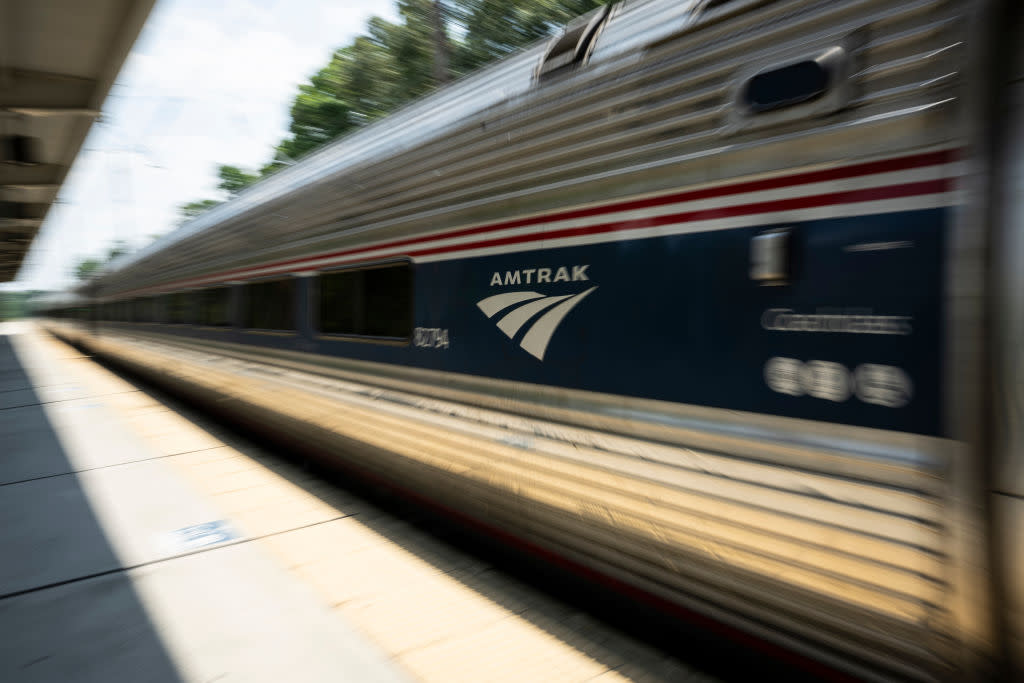Why Extreme Heat Causes Amtrak Delays

An Amtrak train departs BWI Marshall Rail Station in Linthicum Heights, Maryland, on June 17, 2024. Photographer: Graeme Sloan/Bloomberg via Getty Images Credit - Graeme Sloan—Bloomberg/Getty Images
The “heat dome” that has affected more than a hundred million Americans in the Midwest and East Coast this week is causing some minor delays in Amtrak train service, the national passenger railroad company said.
Amtrak warned riders Thursday that they may experience delays of up to an hour between 12 p.m. and 7:30 p.m. for the rest of the week because the high temperatures in the Northeast may require trains to operate at slower speeds. But as of Friday afternoon, Amtrak trains were only experiencing some minor delays of five to 15 minutes along the Northeast Corridor, according to spokesperson W. Kyle Anderson.
Extreme heat can affect Amtrak infrastructure. For instance, if tracks get too hot, they can develop a kink; or if overhead power wires—called a catenary system—get too hot, they can sag, Anderson shares. When the temperature of the rails reaches a certain threshold, Amtrak requires that locomotive engineers operate trains at slower speeds than usual, in order to spot potential hazards and adjust course accordingly.
“Whenever there is extreme heat, we’ll have to implement some minor service adjustments,” Anderson tells TIME.
“It’s a precautionary approach,” he continues. “It doesn’t mean that something has failed; it means that we reduce (the train’s speed) just to be careful.”
Experts called this week the first “significant heat wave of the season.” This weekend, temperatures could reach the upper-90s in Boston and Baltimore, and as high as 100 degrees in Washington, D.C.
Read More: How to Know When High Temperatures Are Getting Dangerous—And What to Do to Stay Safe in a Heat Wave
Typically, when the rail temperature reaches 131 degrees, the maximum speed the train can travel at is 100 mph, according to Amtrak. When the rail temperature reaches 140 degrees, the maximum speed for the train is 80 mph.
Because extreme heat or cold can also cause movable bridges to expand or contract, there may be delays if the bridges need to be opened or closed for vessels to pass through, Anderson says.
Amtrak advised riders to check their train’s status for the most up-to-date information on service. But Anderson stresses that there were no major heat-related delays as of Friday afternoon. (The New Jersey Transit and Amtrak train service traveling in and out of New York City that was disrupted Friday morning wasn’t heat-related, according to Anderson.)
“I have been outside and I know it’s hot, and I just want to make sure that people understand there’s not any major delays due to heat this week,” Anderson says.
Contact us at letters@time.com.
